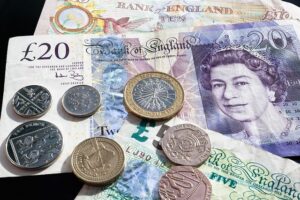The Impact of Norway’s Natural Resources on Investment Opportunities
Norway, known for its stunning fjords and vibrant culture, stands out prominently on the global stage not just for its breathtaking landscapes but also for its wealth of natural resources. These resources have shaped the nation’s economy, influenced its investment opportunities, and established its reputation as a stable and attractive destination for investors. This article delves into the various natural resources that Norway possesses, their impact on the national economy, and how they create lucrative investment opportunities both domestically and internationally.
Natural Resources: An Overview
Norway is endowed with a myriad of natural resources, including oil and gas, hydropower, minerals, forests, and fish. Each of these resources plays a vital role in the country’s economy and offers unique investment avenues. The following is a closer examination of these crucial resources:
Oil and Natural Gas
The petroleum sector is the cornerstone of Norway’s economy, with oil and gas accounting for a significant share of government revenue and export earnings. Since the discovery of oil in the North Sea in the late 1960s, Norway has emerged as one of the world’s leading exporters of crude oil and natural gas. The country boasts substantial reserves, positioning itself as a crucial supplier to the European market.
Investment opportunities in this sector are ripe, as Norway continues to explore new technologies for more efficient extraction, production processes, and sustainable energy alternatives. Companies in the oil and gas sector can leverage Norway’s advanced infrastructure, regulatory framework, and skilled workforce to maximize their investments. Moreover, the government’s commitment to energy transition and reducing carbon emissions presents additional pathways for sustainable investment.
Hydropower
Another significant contribution to Norway’s energy landscape is hydropower, which accounts for approximately 95% of the country’s electricity production. With its abundant rivers and waterfalls, Norway has developed an efficient hydroelectricity system, making it one of the largest producers of renewable energy in Europe. This focus on renewable energy creates substantial opportunities for investors interested in sustainability and green technology.
Moreover, the growth of electric mobility and the increasing demand for clean energy solutions open new avenues for investment in hydropower projects. Norway’s leadership in this sector not only enhances domestic energy security but also positions the country as a potential exporter of green energy technologies.
Minerals and Metals
Beyond energy resources, Norway is rich in various minerals and metals, including iron ore, nickel, copper, and other precious metals. The country’s geology offers a rich tapestry for mining and mineral exploration, providing opportunities for investors to participate in the extraction and production of these critical resources. With global demand for minerals set to rise, especially in the context of green technologies, the mining sector represents a dynamic investment frontier.
Forestry
Norway’s vast forests not only contribute to the nation’s biodiversity but also provide a substantial economic return through timber production and related industries. The forestry and wood-processing sectors are experiencing growth, with opportunities for sustainable timber investment and innovations in wood-based materials. These areas are becoming increasingly attractive for investors aiming for sustainable and eco-friendly investments.
Fisheries
With an extensive coastline, Norway boasts one of the richest fishing grounds in the world. The fishing industry plays a critical role in the national economy, contributing significantly to export revenues. This sector offers numerous investment opportunities in fishing technology, aquaculture, and seafood processing. As global demand for sustainable seafood rises, Norway’s fisheries are well-placed to capitalize on this trend.
The Economic Impact of Natural Resources
The bounty of natural resources has a profound impact on Norway’s economy, significantly contributing to the nation’s wealth and its social welfare model. The revenue generated from oil and natural gas exports has allowed Norway to create a sovereign wealth fund, known as the Government Pension Fund Global, which is one of the largest of its kind in the world. This fund aims to ensure sustainable welfare for future generations and stabilize the economy against fluctuations in the oil market.
Furthermore, the economic stability that comes with natural resource wealth enables Norway to invest heavily in public welfare, education, and social services, which further attracts skilled labor and innovation. This creates a robust ecosystem that draws both domestic and foreign investors, enhancing the country’s overall appeal as a stable investment destination.
Sustainability and the Future of Investments in Norway
As the world shifts towards sustainability, Norway is at the forefront of this transition. The nation’s commitment to renewable energy, reducing carbon emissions, and sustainable extraction practices promotes a favorable environment for green investments. Investors are increasingly looking for opportunities aligning with environmental, social, and governance (ESG) criteria, and Norway stands out with its robust policies and ethical investment climate.
Moreover, the Norwegian government actively encourages innovation and the development of new technologies that can enhance resource efficiency and sustainability. This commitment not only benefits the environment but also ensures the long-term viability of Norway’s natural resources, creating enduring investment opportunities.
Challenges to Consider
While Norway’s natural resources present numerous investment opportunities, there are challenges that investors should consider. The oil and gas sector, in particular, faces scrutiny amidst the global push for carbon neutrality and fossil fuel divestment. Investors need to remain cognizant of the shifting dynamics and the potential regulatory and market changes that could impact this sector.
Additionally, environmental concerns surrounding mining, forestry, and fishing activities necessitate careful consideration of sustainable practices. Investors must navigate legislative frameworks and ensure that their operations align with Norway’s stringent environmental regulations.
Conclusion
In summary, Norway’s vast natural resources have a significant impact on the country’s economy and investment landscape. With oil and gas, hydropower, minerals, forests, and fisheries forming the bedrock of economic activities, the nation presents a plethora of investment opportunities. As Norway transitions towards a more sustainable future, investors can find promising avenues in renewable energy, green technologies, and sustainable resource management. However, navigating the accompanying challenges will require careful planning and adherence to eco-conscious practices.
As an investment destination, Norway is poised for growth, offering both returns and a commitment to sustainability. This unique combination attracts investors looking to balance profitability with responsibility, making Norway one of the most appealing places to invest in the world today.



